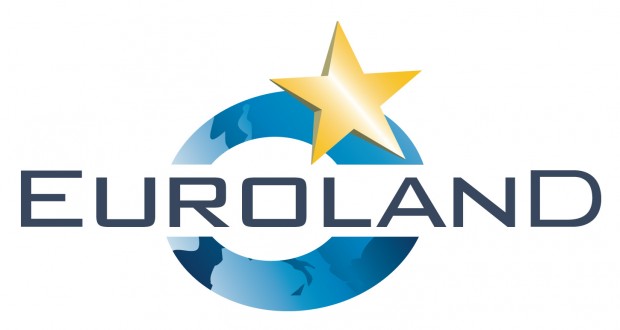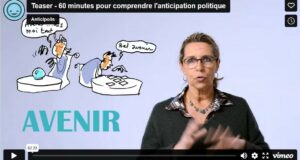Brussels (Aloft Brussels Schuman hotel), January 9th, 2015
Organized by Laboratoire Européen d’Anticipation Politique (LEAP/E2020)
in partnership with Association des Amis de Franck Biancheri (AAFB)
Programme: Friday, January 9th, 2014 – 8.00-13.00
In camera” debates moderated by Marie-Hélène Caillol and Harald Greib
Work session performed in French and English, without translation
8.00-8.30 Participants arrival
8.30-9.00 Introduction by Harald Greib, Vice-President LEAP/E2020
Presentation of participants
9.00-9.30 Why is Euroland critical for the future of the European project? Introduction by Mr Jakob von Weizsäcker, Member of European Parliament (ECON Committee)
Debate
9.30-10.30 Providing Euroland with the world’s most modern supra-national institutional system: national-supranational articulation, flexibility and adaptability, network and coordination
Introduction by Marie-Hélène Caillol, President LEAP/E2020
Multilingualism and Euroland governance, by Michel Soubies, former European Commission official, Founder of GEM+ (Gouvernance Multilingue Européenne)
Debate
10.30-10.45 Coffee break
10.45-11.45 Turning Euroland into History’s first democratic supra-national entity: building Euroland’s institutional system starting from its democratic rooting
Introduction by Mr Thomas Wieser, President of the Euro Working Group of the Euro Area, Economic and Financial Committee, European Union
Trans-national lists for a trans-Euroland democracy, by Antonio Buendía, Cilus
Debate
11.45-12.45 Towards a trans-Euroland Manifesto for a political and democratic union of Euroland
Introduction by Jose-Maria Compagni Morales, Newropeans Club
Debate
12.45-13.00 Conclusions / Next steps
13.00-14.00 Buffet
List of confirmed participants
Thomas Wieser, Président, Groupe de travail EuroGroupe
Jakob von Weizsäcker, Député européen
Michel Soubies, Représentant de l’AFFOI
Stelios Christopoulos, Ancien fonctionnaire de la Commission européenne
Edouard Husson, Historian
Luis Alvarado, Vice-président, Youth Forum
Marie-Hélène Caillol, Présidente LEAP
José Maria Compagni, Newropeans Club
Pedro Simoes, PES
Sophie Berger, LEAP
Léa Charlet, Friends of Franck Biancheri
Sylvain Périfel, LEAP
Philippe Mendil, Cardsoff / France-Soir
Harald Greib, Vice-Président LEAP
Loé Lagrange, Nouvelle Donne, France
Antonio Buendía, Cilus, Spain
Pierre-Marie Pagès, Anticipolis
Tasos Nychas, free-lance collaborator of EIB, former senior officer at DG Environment
Maria João Rodrigues, MEP
Christel Hahn, Newropeans Club
Rationale
The Euro crisis, and more recently the Ukrainian crisis, made it clear that we are facing a severe political vacuum with regard to the European construction. ECB bankers and civil servants from the European Commission and the Member States handled the crisis. From a technical point of view, their work prevented the Euro from collapsing. However, when it comes to the decision-making process, the lack of democratic articulation of the whole process has weakened the whole European structure: rising eurosceptism, anti-austerity protests, accusations of “non-constitutionality” of the Euroland decisions, parliamentary inquiries on the Troïka’s decision-making process…
The Euro Crisis turns out to be less a governance crisis than a legitimacy crisis, in other words a democratic crisis
It belongs to the « Eurolanders » (via their members and representatives) to invent the solutions likely to ensure that Euroland, this new « sovereign » born from a common currency and its adolescent crisis, completes the promise made by Europe’s founding fathers: a political union endowed with political institutions elected by all Europeans.
One aim of this seminar is to sketch the outlines of a founding act for the Euroland, defining its competences and its democratically legitimate decision-making institutions, as well a roadmap for the creation of a political and democratic union of Euroland.
We fully intend to incorporate our discussions and conclusions in a final document in the form of a “Trans-European Manifesto for a Political and Democratic Union of the Euroland”
Forerunners of such manifesto already exist, for example: the Manifesto for a Political Union of the Euro signed by eminent personalities, among whom was Thomas Piketty, famous due to the enthusiastic reception of his book “The Capital in the 21st Century“; or the proposal for a Political Community of the Euro, conducted by the Eiffel Group; or else the document encore le document Towards a Euro Union by Glienicker Gruppe. Yet, unfortunately, all of these manifestos are national initiatives.
Indeed, the political Europe, under its current EU form, was created by nation states. But today, Europe is real enough – due to its institutions, elections, exchange programs such as ERASMUS, and common currency – to be based on a trans-European approach where women and men coming from all member states of the Euro zone gather and reflect together on the Europe we want for ourselves and for our children.
Thus, the Euroland will resume with a long tradition as regards the European integration: progressing thanks to a group of “pioneers” who will draw a new path that others will be invited to take if they wish to.
The seminar is primarily intended for all citizens of Euroland eager to finalize the European integration process, initiated by the founding fathers and reconnecting with the original principles (peace, independence, prosperity, democracy …).
It is especially intended for players of the European civil society, politicians driven by a certain vision of Europe, economists specialized in the Euro zone, members of the European and National Parliaments, as well as senior officials of the member states and Euro zone governments and European institutions, all concerned about the challenge of democratizing the integration process.
Objectives
The conclusions of the seminar contributions and discussions will provide the basis for a “European Manifesto for the Creation of a Political and Democratic Union of Euroland”, which will be circulated among member-states’ governments of the Euro zone, as well as members of European and National Parliaments of the Euro zone.
It will be published in mainstream newspapers of the Euro zone member states in order to launch a trans-European political debate with a view to the editing of a Euroland constitution, to be submitted in a referendum to all Euro zone member states’ citizens.
Conceptual legacy
Already in 2006, within the first GEAB issue (Global Europe Anticipation Bulletin)[1], Franck Biancheri, our deeply bemoaned Director of Research and Strategy, wrote: “The euro zone political leaders will have to face a simple imperative: regain control of the “Euro project”, of which the current Euroland is only a first, totally unfinished, step; or else pay the price of a double electoral abandonment coming from the economic integration follow up and the exclusive business management by central bankers. ”
He recommended regaining political control by establishing two key instruments to handle (in part) the events:
. ”a light institution, but very visible and legitimate politically speaking, of the Euroland’s economic control” (the Euroland’s Secretariat), totally different from the community institutions allowed to define economic, industrial and social answers to the common negative effects of the crisis.
. ”Euroland Summits, as legitimate democratic political authority” gathered on a regular basis (every 4 months), in order to orientate, drive, reensure, and be able to react on rather short notice.
Since 8-9 May, 2010, the Euroland`s summits are part of the European political reality[2].
Already in May, 2010, just days after the first historic Euroland Summit was held, Franck Biancheri required the creation of a parliament for the Euroland, addressing specific decisions made exclusively by members of the European Parliament coming from Euro zone states. In addition, preparations would be made for a trans-Euroland referendum to validate
the overall balance of the Euro zone governance, specified in a very short and understandable text incorporating a democratic electoral control by the citizens[3]. This proposal for the creation of the Euro zone Parliament is already taken up by prominent figures such as Wolfgang Schäuble, German Minister of Finance.
Themes :
• Why is Euroland critical for the future of the European project? (analysis of failures of the 1992-2014 EU project, 2008-2014 series of crises imposing a change of course, need to finalize a system of governance of the euro zone, opportunity to insert the democratic articulation at the heart of the European architecture)
• Providing Euroland with the world’s most modern supra-national institutional system: national-supranational articulation, flexibility and adaptability, network and coordination
• Turning Euroland into History’s first democratic supra-national entity: building Euroland’s institutional system starting from its democratic rooting
• Towards a trans-Euroland Manifesto for a political and democratic union of Euroland
Preparatory Document
(by Harald Greib, Vice-President of LEAP, in charge of the Euroland Governance 2020 work group)
Europe is in crisis: Euro crisis, Ukrainian crisis, destiny crisis, global influence crisis.
One of Europe`s great strengths has always been to take advantage of crises and get out of them as a stronger entity.
Jacques Delors knew how to transform the stagnation period of the European integration process, named « Euro-sclerosis » at that time, into a considerable improvement thanks to the common market creation project, formalized within the European Common Act of 1986.
Helmut Kohl and François Mitterrand were able to transform the instability risk which followed the fall of the Berlin Wall into strengthening the ties between member states through the EU creation initiative, establishing a closer cooperation of the external policies, of the judicial and police matters, founding the economic and monetary union.
In politics, it is clear that currently there is no vision of a desirable evolution as regards the European integration process.
Although the danger of the Eurozone collapse seems far away, the austere policies followed obligatorily by the member states who had to appeal to the European Stability Mechanism (ESM) in order to save their banking system from bankruptcy, or their governments from insolvency, and restore their economic competitiveness, require significant sacrifices as regards the public employment, the role of the state, the level of social care, etc. They could, in the long term, endanger the social cohesion in the concerned states and ultimately jeopardize the functioning of the monetary union, or of the European Union, if equity is not at the heart of the process.
Although the danger of a sustainable EU-Russia conflict seems eliminated, Catherine Ashton`s politics in Kiev showed that European independence from the United States rests on weak bases and strong interest persists within the institutions trying to push Europe into a submissive position as regards the U.S. interests.
Actually, in the present situation, despite all success recorded by the Euroland in its crisis management, the number of Europeans imagining Europe not as part of the solution, but as part of the problem, is clearly growing, threatening the decision making process at the European level and the national political stability.
The results of the European elections of 25 May 2014, which attributed 25% of the MEPs` seats to anti-European and Euro-skeptical parties, are without appeal.
The current institutional framework was allowed to decide and implement the reactive austere politics we know, but the European governance can barely decide upon an active policy for fighting against the crisis, which could include multiple instruments, such as: effective regulation of the financial industry, the introduction of a system of guarantees for bank funding, the creation of Eurobonds, the coordination of macroeconomic policy, a fiscal convergence, the fight against tax evasion, a relaunching policy plan via infrastructure construction, financed by loans[4], a tax on financial transactions, repatriation of Euro currency capital markets in the Euroland, a European Rating Agency, etc. [5]
All of those are for good reasons! These instruments and measures would imply such pooling of sovereignties that the democratic legitimacy of the EU currently seems most insufficient. Should we remind you that the European Parliament, the only European institution issued by popular vote, is not elected by all Europeans in a unique / common election, but it’s only a juxtaposition of national members elected by 28 national elections? That they do not hold the right of legislative initiative, though essential to the function of a democratic parliament? That the German Bundesverfassungsgericht in its many stops as regards the European Institutional evolution is a constant reminder that the European Parliament on its current legal basis could never fulfill the role of democratic vector in the European legislative process? That any kingly measure infringing the Europeans` fundamental rights can only be made by an institution that has been elected through direct universal suffrage by all Europeans?
The current institutional framework has been unable to control the troubles of its High Representative for Foreign Affairs, Ms Catherine Ashton, who in the EU-Russia-Ukraine reports has pursued a policy in favor of American interests to the detriment of the European interests.
All of those are for good reasons! The institutional configuration does not ensure an effective democratic control of the European Commission, the only hierarchical institution facing a 28 state Council of Ministers struggling to find agreements and unable to act on short notice and in emergencies.
In the current structure of the EU and Euroland systems, the unanimous vote remains within the Council of Ministers as the only democratic guarantee, ensuring that everyone is fully represented in the European decision making process.
Yet, such a rule paralyzes the functioning of the EU, one or more member states still evoking compelling reasons to deny decisions desired by the majority and seriously undermining the effectiveness of the decision-making process, thus disabling any exercise of global influence within the EU.
Therefore, the European Union finds itself, with its 500 million inhabitants and its global economic power status, a helpless giant.
In addition, this is a direct consequence of the crisis of fate that underlies the whole process of European integration, since Charles de Gaulle put his idea of a ”Europe of nations” in opposition to the initial project of European integration, i.e., the “pooling of national sovereignties” dear to Jean Monnet and other founding fathers of the European Communities, which should have led to the establishment of a European political union. Unfortunately, this has never been the case.
This essential disagreement on the purpose of the European integration process has been reinforced with the arrival of the United Kingdom, Denmark, Sweden and other member states. An incredible energy and immeasurable time were lost in fruitless discussions on “federation”, “confederation”, “community of Nation States”, etc., instead of questioning (and answering) “What Europe do we want?”; “What degree of solidarity?”; “What degree of harmonization?”; “How much pooling of sovereignties?”; “What role for Europe in the world?”; and “What institutions are needed to make this Europe democratic?”.[6] One thing is still obvious: the Europeans will no longer accept a system that produces decisions having a certain impact on their lives without ever knowing clearly who has made them, and without being able to sanction or support any political orientation whatsoever at the polls.
As a result, Europe is faced with the crisis, devoid of an effective decision-making system and unable to make decisions in the interest of all Europeans. Not only does the crisis drag on for a long time, but Europe may miss its chance to take its place in tomorrow`s multi-polar world, next to the U.S. and the BRICS.
The Institutional Gordian knot releasing the path to the European political union will be cut only by a rebellion of the civil society which will assume the task of writing a European constitution to be submitted for approval to the European men and women through trans-European referendum.
[1] Monthly publication edited by LEAP, worldwide known due to its precise anticipations on the evolution of the global systemic crisis, ever since February 2006.
[2] The instauration which was qualified by Franck Biancheri as Coup d’Etat of the Euroland on the Community system (GEAB No. 45 of May 2010) expelling the United Kingdom and Sweden from the governance of the Economic and Monetary Union.
[3] GEAB No. 45 of May 2010
[4] Which Franck Biancheri already recommended in June 2008.
[5] A list which Franck Biancheri already presented in February 2012.
[6] Franck Biancheri was already writing in the GEAB No. 62 of February 2012 that there was « an absolute imperative for the European elites to take away the democratic mortgage weighing heavily on the European integration process »


 LEAP2040 Toutes les informations et archives Europe2040
LEAP2040 Toutes les informations et archives Europe2040



